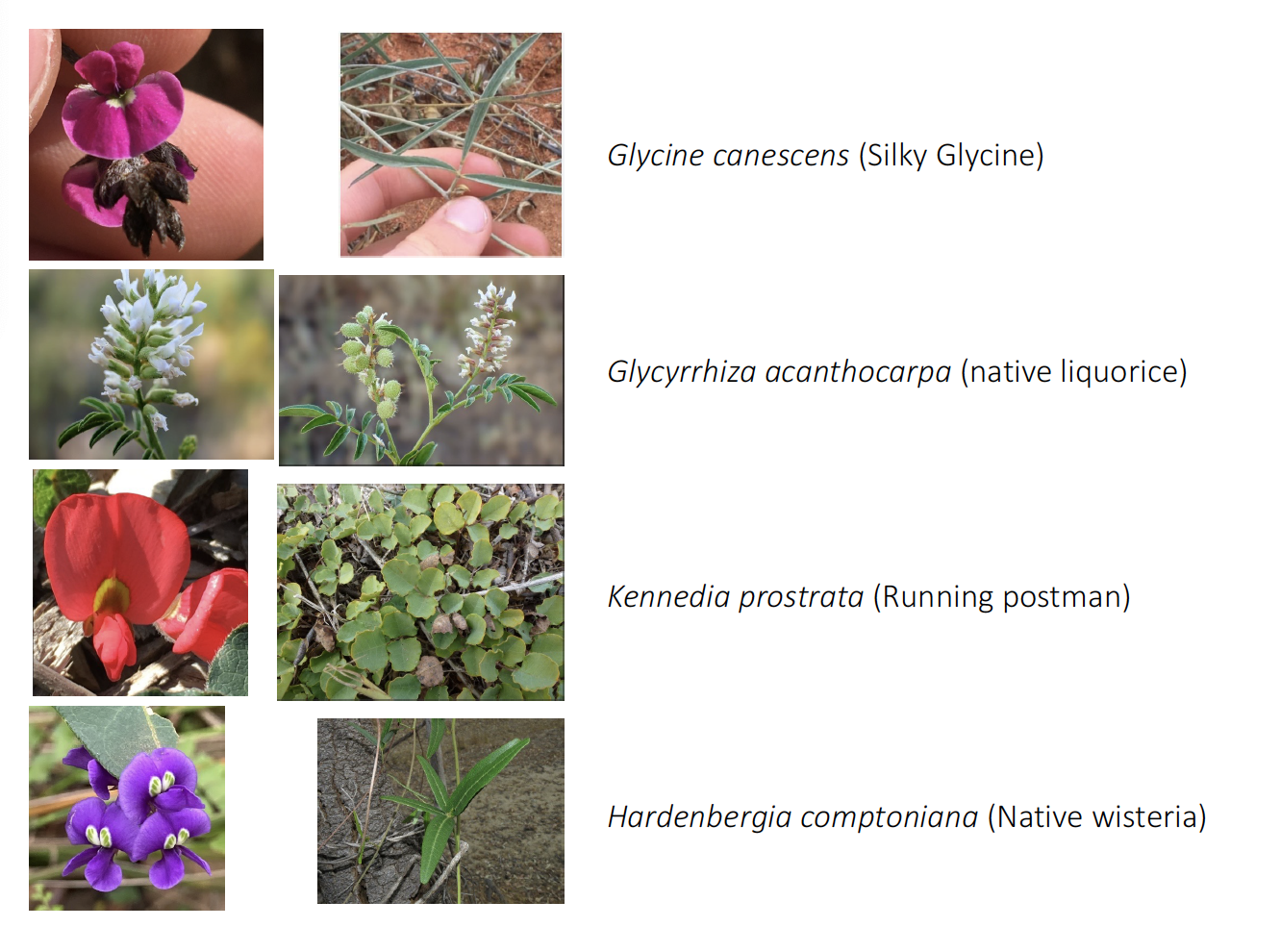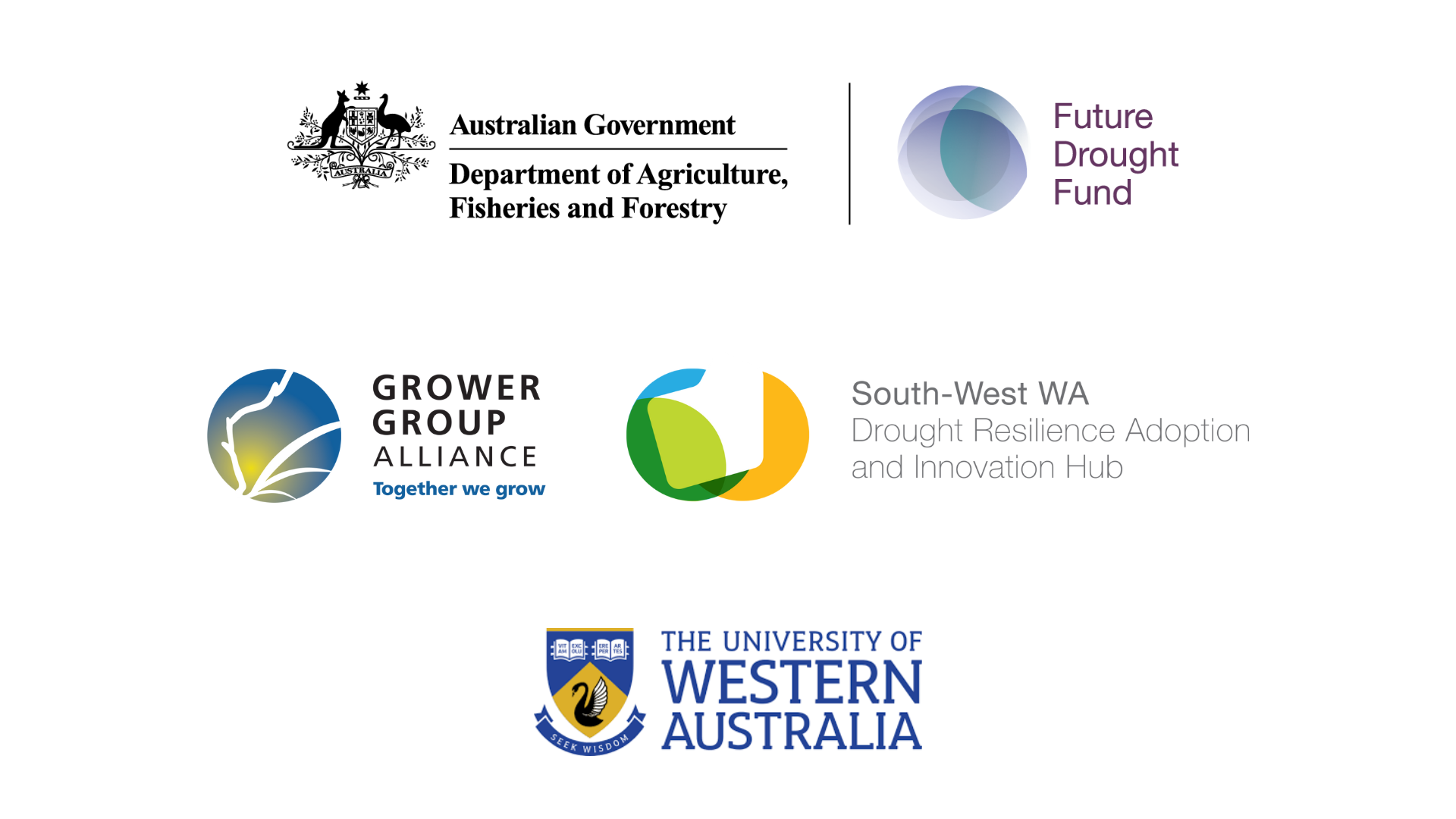Project lead: University of Western Australia
Project dates: January 2023 – June 2024
Project summary
With the ongoing challenges of a drying climate, the demand for reliable water resources in the South-West region of Western Australia is becoming increasingly critical. Local growers and grazers have identified water availability as one of the most significant constraints on agricultural production. A survey conducted through the WaterSmart Dams project revealed that 50% of farms in the region face dry or challenging conditions every five years. Given that most farmers rely on farm dams for their water needs, it is essential to protect and enhance both the quality and quantity of these water supplies.
Key water quality issues in Western Australia include pH imbalance, temperature fluctuations, turbidity, and salinity, all of which can significantly impact the effectiveness of chemicals used in crop and pasture management. Even slight variations in water quality can reduce the efficacy of spraying, leading to decreased agricultural performance. Traditional mitigation practices, such as increasing product application rates or using buffering agents and adjuvants, can be costly and unsustainable in the long term. Innovative methods to improve water quality of farm dams, such as liners, covers, filter strips and desalination techniques, could be considered to address these challenges.
In collaboration with grower group members of the Grower Group Alliance, the project focused on assessing water quality across the South-West region of WA, particularly in the Merredin catchment area. The project’s goal was to identify prevalent water quality issues, evaluate the costs and benefits of potential improvement techniques, and effectively communicate viable solutions to local farmers.
Results and recommendations
123 samples were collected across the South-West region of WA, with 68 of these taken from the Merredin area. The results indicate that the Merredin region’s dam water is characterised by high pH and turbidity levels, while salinity and hardness remain low. In contrast, bore water in the region presents more significant challenges, with elevated hardness and salinity, though it exhibits low turbidity and is slightly alkaline.
In the face of climate change, effective water management techniques are essential to ensure sustained agricultural production. These strategies must address key challenges such as high turbidity in dam water and the issues of hardness and salinity in bore water.
Cropland farming significantly impacts water management, increasing surface runoff, altering sediment loads, and contributing nitrates and phosphorus from fertilisers into nearby streams and rivers. To mitigate these effects, solutions such as enlarging or upgrading dams, reducing evapotranspiration and sedimentation with native vegetation borders and covers, grading the landscape to control water flow into catchment areas, and implementing desalination techniques can be highly effective.
The findings of this research empower producers, agribusinesses, regional communities, and development organisations to collaborate on tailored management strategies that address the unique environmental conditions within their farming areas.
This project is supported by the South-West WA Drought Resilience Adoption and Innovation Hub through funding from the Australian Government’s Future Drought Fund.
News
Research team on the look-out for native legumes samples
The research team is currently looking for samples of Glycine canescens (Silky Glycine), Glycyrrhiza acanthocarpa (native liquorice), Kennedia prostrata (Running postman), and Hardenbergia comptoniana (Native wisteria) to evaluate their potential as grain and pasture crops. Images of the species are below.
Farmers who have any of these species on their property and are willing to allow samples to be taken are invited to provide their contact details at the link below. One of the researchers will follow up for collection.
Sampling is scheduled to take place mid-September.

Native species
Collaborators

The project team would like to thank the Australian Herbicide Resistance Initiative (AHRI) and the Merredin & Districts Farm Improvement Group (MADFIG) for supporting this project.
Contact
Nik Callow
Associate Professor, UWA School of Agriculture and Environment
nik.callow@uwa.edu.au
Kellie-Jane (KJ) Pritchard
Hub Project Manager, South-West WA Drought Resilience Adoption and Innovation Hub
kjpritchard@gga.org.au
